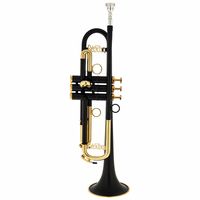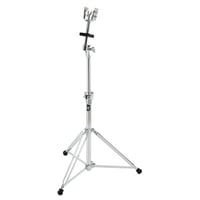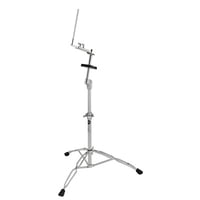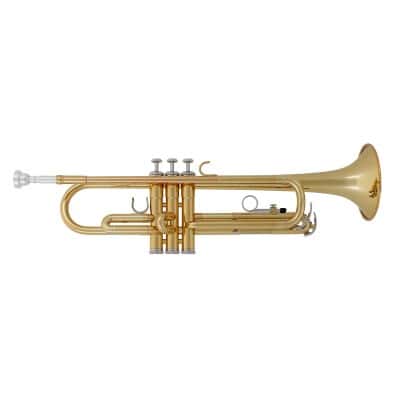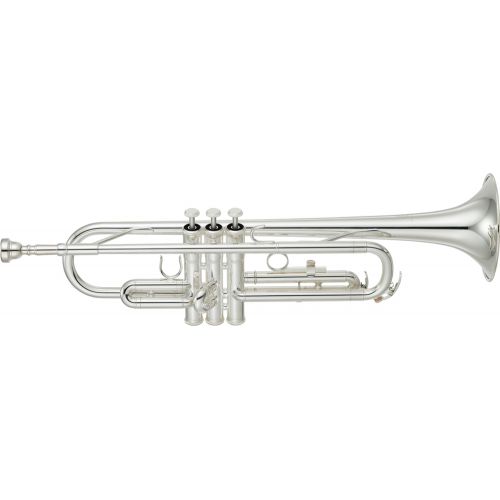|
| Time To Travel
Orchestre d'harmonie [Conducteur et Parties séparées] - Intermédiaire
Scomegna Edizioni Musicali
By Angelo Sormani. For concert band. Grade 3. Score and full set of parts. D...(+)
By Angelo Sormani. For
concert
band. Grade 3. Score and
full
set of parts. Duration 4
minutes, 50 seconds.
Published
by Scomegna Edizioni
Musical
srl
$115.88 $110.086 (- 5%) Voir plus => AcheterDélais: 4 to 6 weeks | | | |
| Scenes from an English Landscape
Orchestre d'harmonie [Conducteur] - Intermédiaire
G and M Brand Music Publishers
Concert band (Piccolo, Flute 1/2, Oboe 1/2, Bassoon 1/2, Bb Soprano Clarinet 1-3...(+)
Concert band (Piccolo,
Flute 1/2, Oboe 1/2,
Bassoon 1/2, Bb Soprano
Clarinet 1-3, Eb Alto
Clarinet, Bb Bass
Clarinet, Alto Saxophone
1/2, Tenor Saxophone,
Baritone Saxophone,
Cornet (in Bb) 1-3,
Trumpet (in Bb) 1/2,
French Horn 1-4 ,
Trombone 1-3, Euphonium,
Tuba, Stri) - grade 4
SKU: CN.S11242
Composed by Adam Gorb.
Arranged by Michael
Brand. Band Music. Score
only. Duration 4:20.
Published by G & M Brand
Music Publishers
(CN.S11242).
Scenes from an
English Landscape is a
brief nostalgic tone poem
taking its inspiration
from visions of rural
England as depicted in
the paintings of John
Constable, the novels of
Thomas Hard, and the
music of Gustav Holst and
Ralph Vaughan Williams. A
chorale-like theme is
stated in the brass and
then taken up at three
times the tempo in the
woodwinds. At the end of
the work, both versions
of the theme are stated
together to bring the
piece to a triumphant
climax.
This is a
brief nostalgic tone poem
taking its inspiration
from visions of rural
England as depicted in
the paintings of John
Constable, the novels of
Thomas Hard, and the
music of Gustav Holst and
Ralph Vaughan Williams. I
imagined a community of
villagers coming out of
church and filling a
village square with their
vibrant presence. A
chorale-like theme is
stated in the brass and
then taken up at three
times the tempo in the
woodwinds. At the end o
the work, both versions
of the theme are stated
together to bring the
piece to a triumphant
climax. Adam Gorb was
born in Cardiff and
started composing at the
age of ten. His first
work broadcast on
national radio was
written when he was
fifteen. He studied at
Cambridge University
(1977-1980) and the Royal
Academy of Music
(1991-1993) where he
graduated with the
highest honours including
the Principal's Prize. He
has been on the staff at
the London College of
Music and Media, the
junior Academy of the
Royal Academy of Music
and, since 2000 he has
been the Head of School
of Composition at the
Royal Northern College of
Music in Manchester .
International recognition
came in 1994 with the US
Walter Beeler Prize for
his work Metropolis .
With it began what has
developed into probably
the most important wind
ensemble catalogue by a
contemporary composer,
ranging from extremely
challenging to the most
accessible, at all
technical levels, seized
on by players
internationally, widely
recorded and now
absolutely central to the
world's wind repertoire.
Equally important though
are his works for dance,
and concert pieces like
the chamber orchestral
Weimar , the Violin
Sonata , a Clarinet
Concerto for the Royal
Liverpool Philharmonic
Orchestra and Diaspora
for strings (for the
Goldberg Ensemble).
Deceptively mainstream at
first glance, they
display the same
inventive brilliance,
pulsating sound world,
striking use of rhythm
and an undogmatic absence
of stylistic hang-ups to
embrace jazz and
serialism in works where
power, poetry, irony and
pathos, often underlaid
by a theatrical and
deeply subversive
element, coalesce in an
integrated, highly
individual musical voice.
Gorb is also not afraid
to draw on the vivid
musical heritage of his
Jewish roots, sometimes
directly, often in a more
subsumed or radically
creative way. The crucial
and consistent feature of
Gorb's work though is
that it communicates
strongly without
patronizing players or
audiences. He firmly
believes that if
contemporary music - any
music - does not impact
on listeners then its
message is irrelevant; it
is lost. $7.50 - Voir plus => AcheterDélais: 3 to 4 weeks | | | |
| I've Fallen in Love With You [Conducteur et Parties séparées] - Intermédiaire
Music Sales
Flexible Wind Quartet and Percussion - intermediate SKU: BT.1239-05-070-MS(+)
Flexible Wind Quartet and
Percussion - intermediate
SKU:
BT.1239-05-070-MS
Composed by Carla Thomas.
Arranged by Peter Kleine
Schaars. Music Box. Pop &
Rock. Set (Score &
Parts). Composed 2006. 12
pages. Music Sales
#1239-05-070 MS.
Published by Music Sales
(BT.1239-05-070-MS).
9x12 inches.
English-German-French-Dut
ch. The English
female pop/rock singer
Joss Stone, who was born
in 1987, grew up with
American soul and R&B
music. Stone's impressive
style of singing has
depth and conveys
emotion. Her unique
phrasing and large voice
make us forget how young
this singer actually is.
She embraced the
opportunity to record the
soul song I've Fallen
in Love with You,
originally performed in
the 1960s by the Memphis
Queen Carla Thomas. Peter
Kleine Schaars has taken
this beautiful song and
created an arrangement
for five-part flexible
ensemble.
Het
soulnummer I've Fallen
in Love with You van
‘Memphis Queen'
Carla Thomas is weer
helemaal actueel in de
vertolking van de jonge
Engelse pop/rockzangeres
Joss Stone. Peter Kleine
Schaars heeft van deze
mooie song een
arrangement voor
vijfstemmige variabele
bezetting geschreven.
I’ve
Fallen in Love with
You, ein
Soulklassiker aus den
sechziger Jahren von
Carla Thomas, ist die der
Interpretation des
englischen Stimmwunders
Joss Stone ein
topaktueller Hit. Peter
Kleine Schaars reagierte
schnell und machte dieses
wunderschöne Lied
für eine variable
fünfstimmige
Bläserbesetzung
spielbar.
Part 1
Fl Ob Kl B S-Sax Trp Part
2 Fl Kl B Alt-Kl A-Sax
Trp Hrn Part 3 Alt-Kl
T-Sax Fg Hrn Pos Euph
Part 4 T-Sax Fg Pos Euph
Part 5 B-Kl B-Sax Fg Pos
Euph Tuba Kb Opt. Drum
I’ve
Fallen in Love with
You è un classico
della musica soul degli
anni ’60. La
canzone è divenuta un
successo
nell’interpretazio
ne di Joss Stone. Peter
Kleine Schaars ha
arrangiato questa
splendida melodia per
ensemble a strumentazione
variabile a cinue
voci. $38.95 - Voir plus => AcheterDélais: 2 to 3 weeks | | | |
| Best of Contemporary Christian
Fake Book [Fake Book] - Intermédiaire
Hal Leonard
Over 400 Songs. Fake Book (Includes melody line and chords). Size 9x12 inches. 5...(+)
Over 400 Songs. Fake Book
(Includes melody line and
chords). Size 9x12
inches. 583 pages.
Published by Hal Leonard.
(4)$49.95 - Voir plus => AcheterDélais: 24 hours - In Stock | | | |
| Souvenirs
Violoncelle, Piano - Intermédiaire
Salabert
Cello and Piano - intermediate SKU: BT.SLB-00595900 Extrait de la musi...(+)
Cello and Piano -
intermediate SKU:
BT.SLB-00595900
Extrait de la musique
de scène pour « Le
Voyageur sans bagages
». Composed by
Francis Poulenc.
Classical. Book and
Part(s). Composed 2016. 5
pages. Editions Salabert
#SLB 00595900. Published
by Editions Salabert
(BT.SLB-00595900).
INSSTR inches.
French. A
previously unreleased
piece by Francis Poulenc,
published with permission
from the Bibliothèque
Historique de la Ville de
Paris and Benoît
Seringe, secretary of the
Association des amis
de Francis Poulenc
[Association of the
Friends ofFrancis
Poulenc]. Le Voyageur
sans bagage [The
Traveller Without
Luggage], which had been
premiered in 1937 with
music by Darius Milhaud,
was reprised on 1 April
1944 at the Thé tre de
la Michodière; Francis
Poulenc was asked to
compose new stage music.
Theentire unpublished
score lay undiscovered
until Bérengère de
l’Épine, a
librarian at the
Bibliothèque
Historique de la Ville de
Paris, announced the
existence of a manuscript
in the Association de la
Régie Thé trale
collection.Poulenc
finalised the score
between 19 and 21 March
1944. It contains nine
songs, all written for a
small instrumental
ensemble including oboe,
clarinet, cello and
piano. However, at the
end of the manuscript,
the composer echoes the
second song Lent
[Slow] and creates
another version for cello
and piano; curiously, the
original version of the
song has not been erased
in the manuscript.
Poulenc seems to suggest
that we consider the
piece for cello and
piano, that we have
publishedhere, as a
different piece of music.
It was premiered on
Wednesday 23 January 2013
by Marc Coppey,
accompanied by
Jean-François Heisser,
in the organ auditorium
of the Conservatoire
National Supérieur de
Musique et Danse de Paris
(CNSMDP), during
thesymposium for the
fiftieth anniversary of
Poulenc’s
death.Given in a dramatic
context, some elements
allow us to get an idea
of the character of the
piece, which Benoît
Seringe, Poulenc’s
beneficiary, judiciously
chose to name
Souvenirs.The main
character of
Anouilh’s play,
Gaston, is suffering from
amnesia at the end of
World War One. Several
families try to claim
him; they want him to be
their missing relative.
The Renaud family prove
to be particularly
stubborn, but Gaston
doesnot recognize himself
in the child and young
man they depict: a
ruthless and violent
person. In Act 1 Scene 3,
left alone for a moment,
overwhelmed by the story
of the “old
Gaston†that is
gradually coming to
light, and outraged by
the desire ofthose around
him to appropriate him
(to the detriment of the
person he would like to
be from now on), he
whispers these words:
“You all have
proof, photographs that
look like me, memories as
clear as day…
I’ve listened to
you all and it’s
slowlycausing a hybrid
person to rise up in me;
a person in which there
is a piece of each of
your sons and nothing of
me.†Poulenc chose
to place the second piece
from his stage music
score as these words are
spoken.He borrowed part
of the material, as he
often did, from an
earlier composition. In
this particular case, the
beginning is a recycled
version of the
“slow and
melancholicâ€
section from
L’Histoire de
Babar , composed
between 1940 and 1945,
andpremiered in 1946
(unless it is Babar
that reuses the
musical idea from
Voyageur ).The
eponymous elephant
decides to leave in
search of the great
forest. He embraces the
old lady, promises her he
will return and reassures
her that he will never
forget her. Left alone,
the old lady, feeling sad
and pensive, wonders when
she’ll seeher
friend Babar again. The
situation is similar to
that in Voyageur sans
bagage: solitude,
sadness, a distressing
and introspective time,
fear of oblivion, the
presence of
memories…
Pi
èce inédite de
Francis Poulenc,
publiée avec
l’autorisation de
la Bibliothèque
historique de la ville de
Paris et de Benoît
Seringe, secrétaire de
l’Association des
Amis de Francis
Poulenc.Le 1er avril
1944, Le Voyageur sans
bagage d’Anouilh,
qui avait été
créé en 1937 avec
de la musique de Darius
Milhaud, est repris au
Thé tre de la
Michodière. Francis
Poulenc a été
sollicité afin
d’écrire une
nouvelle musique de
scène. On ignoraittout
de cette partition
inédite,
jusqu’au jour
où Bérengère de
l’Épine,
conservateur la
Bibliothèque
historique de la ville de
Paris, nous signala
l’existence
d’un manuscrit
dans le fonds de
l’Association de
la Régie thé
trale.Poulenc mit au
point sa partition entre
le 19 et le 21 mars 1944.
Elle comprend neuf
numéros, tous
écrits pour un petit
effectif instrumental
réunissant un
hautbois, une clarinette,
un violoncelle et un
piano.Cependant, la fin
de son manuscrit, le
compositeur reprend le no
2 Lent et en donne une
seconde version, pour
violoncelle et piano.
Curieusement, la version
originale de ce numéro
n’est pas
biffée dans le
manuscrit.Poulenc semble
nous inviter
considérer comme un
morceau distinct cette
pièce pour violoncelle
et piano dont nous
proposons ici
l’édition. Elle
a été créée
par Marc Coppey,
accompagné de
Jean-François Heisser,
lors du concert donné
durant lecolloque
organisé pour le
cinquantenaire du
décès de Poulenc,
le mercredi 23 janvier
2013, salle
d’orgue du
Conservatoire National
Supérieur de Musique
et de Danse de Paris
(CNSMDP).Quelques
éléments sur le
contexte dramatique
permettront de se faire
une idée du
caractère du morceau,
que Benoît Seringe,
ayant droit Poulenc, a
judicieusement choisi
d’intituler
Souvenirs.Le personnage
principal de la pièce
d’Anouilh, Gaston,
a été retrouvé
amnésique la fin de la
Première Guerre
Mondiale. Plusieurs
familles le réclament.
On veut voir en lui un
parent disparu. Les
Renaud se montrent
particulièrement
tenaces ; maisGaston ne
parvient se
reconnaître dans
l’enfant et le
jeune homme dont on lui
trace le portrait : un
être violent et sans
scrupule. Au tableau 3 de
l’acte I, resté
seul un moment,
écrasé par
l’histoire de cet
autre lui-même
qu’il découvre
peu peu, indigné par
le désir des personnes
qui l’entourent de
le ramener elles au
détriment de celui
qu’il voudrait
être désormais, il
se murmure ces paroles :
« Vous avez tous des
preuves, des
photographies
ressemblantes, des
souvenirs précis
commedes crimes… je
vous écoute tous et je
sens surgir peu peu
derrière moi un
être hybride où il
y a un peu de chacun de
vos fils et rien de moi
»…C’est
sur ces mots que Poulenc
a choisi de placer le no
2 de sa partition de
musique de scène.Comme
il le fait souvent, il
emprunte une composition
antérieure une part de
son matériau. Dans ce
cas précis, il
réutilise pour le
début du morceau la
section « Lent et
mélancolique » de
l’Histoire de
Babar, composée entre
1940 et 1945, créée
en1946 ( moins que ce ne
soit Babar qui
réutilise
l’idée musicale
du Voyageur). Le
héros-éléphant
s’est décidé
partir pour retrouver la
grande forêt. Il a
embrassé la vieille
dame, lui a promis de
revenir, l’a
rassurée : jamais il
ne
l’oubliera.Rest�
�e seule, la vieille
dame, triste et pensive,
se demande quand elle
reverra son ami Babar. La
situation est similaire
celle du Voyageur sans
bagage : solitude,
tristesse, instantde
trouble et de retour sur
soi, crainte de
l’oubli,
présence des
souvenirs…. $11.95 - Voir plus => AcheterDélais: 4 to 6 weeks | | | |
| The Complete Chopin Mazurkas
Guitare
Guitare classique [Partition + Accès audio] - Intermédiaire
Mel Bay
Fifty-one Mazurkas Newly Arranged for Solo Guitar. Composed by Stephen Aron....(+)
Fifty-one Mazurkas Newly
Arranged for Solo Guitar.
Composed by Stephen Aron.
Guitar: Classical and
Lute,Style,Classical,Solo
s.
Book and Online Audio.
256
pages. Published by Mel
Bay
Publications, Inc
$29.99 - Voir plus => AcheterDélais: 1 to 2 weeks | | | |
| Sine paenitentia
Chorale SATB
SATB divisi - Intermédiaire
GIA Publications
SATB choir, divisi, soprano voice solo, tenor voice solo, piano reduction - Inte...(+)
SATB choir, divisi,
soprano voice solo, tenor
voice solo, piano
reduction - Intermediate
SKU: GI.G-8815
Composed by Cortlandt
Matthews. Ordinary Time
20 A. Evoking Sound.
Music Education. Octavo.
8 pages. GIA Publications
#8815. Published by GIA
Publications (GI.G-8815).
UPC: 785147881506.
English, Latin. Text
Source: Romans 11:29,
Latin Vulgate. Scripture:
Romans 11:29. I
composed this setting in
my last weeks of study at
Westminster Choir
College. The Latin text
(Sine paenitentia enim
sunt dona et vocatio Dei)
translates roughly to
“Truly, without
regret are the gifts and
callings of God.â€
This piece serves not
only as an outward
affirmation for all to
embrace and use their
God-given talents, but
also as an inward mantra
for myself, as I move
into an uncertain period
in my life after
completing my
undergraduate studies.
Many of the colors and
textures found within
this piece were
influenced by my
experience singing with
the Westminster
Williamson Voices for two
years. While the
“sine
paenitentia†text
may allow shades of doubt
to creep in, all
uncertainty and fear is
dispelled upon singing
“sunt dona et
vocatio Dei.â€
—Cortlandt
Matthews Here is an
amazing performance by
The Westminster
Williamson Voices at the
Choral Insititute at
Oxford. Ryan Manni,
Conductor. $2.40 - Voir plus => AcheterDélais: 1 to 2 weeks | | | |
| 50 Easy Contemporary Pieces for Fingerstyle Guitar
Guitare
Guitare classique [Partition + Accès audio] - Intermédiaire
Mel Bay
Adult Contemporary, Perfect binding. Jazz. Book and online audio. 92 pages. Me...(+)
Adult Contemporary,
Perfect
binding. Jazz. Book and
online
audio. 92 pages. Mel Bay
Publications, Inc
#31004M.
Published by Mel Bay
Publications, Inc
$19.99 - Voir plus => AcheterDélais: 1 to 2 weeks | | |
|
 États-Unis
États-Unis États-Unis
États-Unis

















